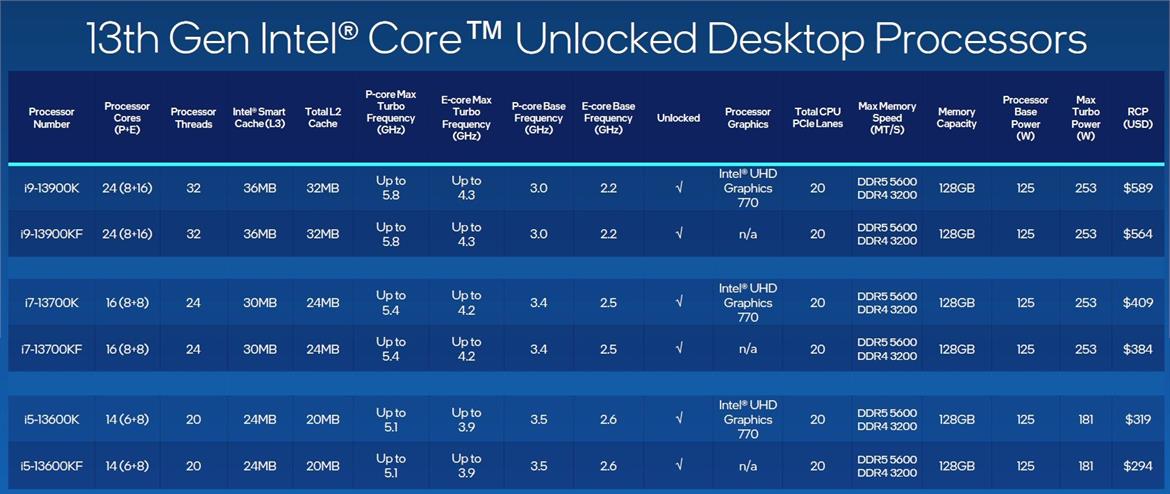- Joined
- Jun 13, 2005
- Messages
- 61,696
- Reaction score
- 25,925
Inadvisable strategy.Why I need so many cores? For gaming future proofing. I like to spend money once for a long time.
This strategy only had some argument back with AMD's FX series, for example, after pricing on those CPUs crashed, and suddenly you were comparing CPUs like the FX-8350 for ~$130 against i3's that were nearly equal in gaming performance, but lacked that long-term upside. That's not the case, anymore. In games, the 10900K isn't really doing any better against the 10700K, and the 3950X isn't doing any better against the 3700X, than they already were at launch. Sure, in 4-5 years, the 10900K and 3950X will probably hang on longer to sustain minimums before falling off, thanks to those extra cores, but is that what spending up to $2000 is intended to secure?
Consider pricing of the just announced Zen 4:
- $699 = R9-7950X
- $549 = R9-7900X
- $399 = R7-7700X
- $299 = R5-7600X

Why spend an extra $300-$400 on the 7950X for an extra ~1% gaming performance over the 7700X or 7600X? Instead of spending $700 on the 7950X, buy the 7700X for $400, and then in a few years upgrade to the future Ryzen 7 for $400-$450. That future Ryzen 7 will undoubtedly shit on the 7950X in gaming. It's a more efficient distribution of funds that will achieve a far higher average gaming performance over the span of the years for which you hope to be "future-proofed".





